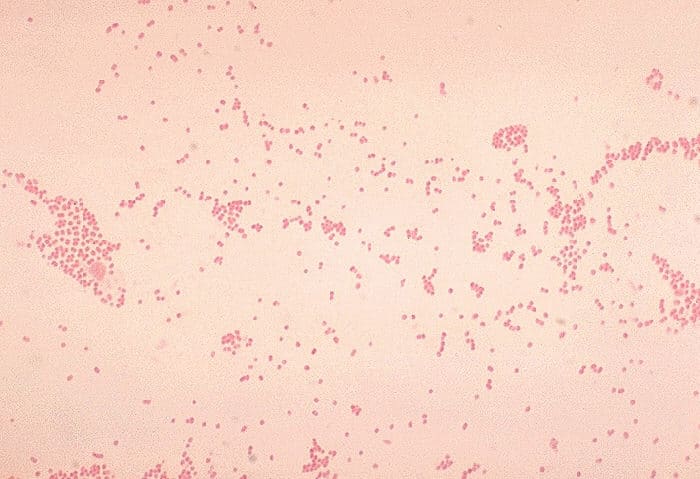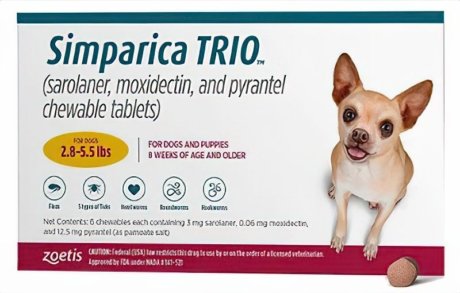Unveiling the Enigma of Bordetella | From Types to Treatment
Bordetella, a group of bacteria, is often the culprit behind respiratory infections in both humans and animals. Understanding the different species of Bordetella, their associated symptoms, and effective prevention measures is crucial in safeguarding the health of both yourself and your furry companions. In this SEO-friendly post, we’ll embark on a comprehensive exploration of Bordetella, equipping you with the knowledge to recognize, manage, and mitigate the risks associated with this infectious agent.
Bordetella
Bordetella, a seemingly innocuous name for a genus of bacteria, holds within it the power to wreak havoc on both human and animal populations. In this extensive journey through the world of Bordetella, we will dissect its intricacies, ranging from its different types, symptoms, diagnosis, treatment, and most importantly, its impact on both human and animal health. Understanding Bordetella is not merely an academic exercise; it is essential for safeguarding public health, the health of our pets, and for preserving the harmony of the animal-human interface.

Bordetella Parapertussis:
Bordetella parapertussis is a bacterial species closely related to Bordetella pertussis, which is responsible for causing whooping cough (pertussis) in humans. While they share genetic similarities, Bordetella parapertussis typically leads to a milder form of the disease. Symptoms resemble those of pertussis but are less severe and often resolve without severe complications. This bacterium highlights the complexity of respiratory infections and their varying degrees of severity.
Bordetella Bronchiseptica:
Bordetella bronchiseptica is a Gram-negative bacterium known for its broad host range, capable of infecting various animals, including dogs, cats, and even humans. It primarily colonizes the respiratory tract and can result in respiratory infections. In dogs, it’s a significant cause of kennel cough, a highly contagious respiratory disease. In cats, Bordetella bronchiseptica can lead to upper respiratory infections, especially concerning in crowded environments like shelters.
Bordetella In Dogs:
In dogs, Bordetella bronchiseptica is a prominent pathogen associated with kennel cough. Kennel cough is characterized by a persistent, dry, hacking cough, often accompanied by sneezing, nasal discharge, and occasionally fever and lethargy. This condition can spread rapidly in settings where dogs congregate, such as kennels, doggy daycares, or dog parks.
Bordetella In Cats:
Cats are not immune to Bordetella bronchiseptica either. This bacterium can cause upper respiratory infections in felines, leading to symptoms like sneezing, coughing, nasal discharge, and sometimes conjunctivitis. In environments with multiple cats, such as shelters or catteries, it can be particularly problematic.
Bordetella In Humans:
Humans, however, are primarily affected by Bordetella pertussis, which leads to whooping cough. This is a highly contagious respiratory disease characterized by severe and prolonged coughing fits, often followed by a characteristic “whooping” sound during inhalation. It can be especially dangerous in infants and young children, highlighting the importance of vaccination to prevent its spread.
Types of Bordetella
To unravel the secrets of Bordetella, we must first understand its two primary types: Bordetella Pertussis and Bordetella Bronchiseptica.

Bordetella Pertussis: The Whooping Cough Villain
Bordetella Pertussis is the primary agent behind the infamous Whooping Cough, a respiratory disease characterized by violent coughing fits. Its effects can be especially severe in infants, leading to complications such as pneumonia. Let’s explore this bacterium in depth.
Bordetella Pertussis exhibits a fascinating yet devastating life cycle. This bacterium primarily targets the respiratory tract, particularly the cilia of the bronchial epithelium, where it attaches itself. The result is a series of symptoms that can range from mild to severe, culminating in the characteristic whooping sound of coughing.
The symptoms of Whooping Cough are alarming, especially in young children, and can include paroxysmal coughing, post-tussive vomiting, and apnea. These symptoms arise from the toxins produced by Bordetella Pertussis, which damage the respiratory lining and suppress the immune response.
Preventing Whooping Cough: The Vital Role of Vaccination
Preventing Whooping Cough is a critical public health concern. The gold standard for prevention is vaccination, primarily through the DTap vaccine (Diphtheria, Tetanus, and acellular Pertussis) in children. Booster doses for adolescents and adults are also essential to maintain herd immunity.
Bordetella Bronchiseptica: The Canine Conundrum
While Bordetella Pertussis is notorious in the human realm, its counterpart in the animal kingdom is Bordetella Bronchiseptica. This bacterium primarily affects dogs and other mammals, leading to respiratory illness. If you’re a pet owner, understanding the impact of Bordetella Bronchiseptica is crucial.
Bordetella Bronchiseptica is highly contagious among dogs and is often a concern in places like kennels and animal shelters. Its transmission occurs through respiratory droplets, much like Bordetella Pertussis in humans.
Spotting Bordetella Bronchiseptica: Symptoms in Pets
In dogs, Bordetella Bronchiseptica can lead to a variety of respiratory symptoms, including a persistent cough, nasal discharge, and lethargy. This bacterium can also lead to secondary infections, making early diagnosis and treatment essential.
Treatment for Bordetella Infections
Whether you’re dealing with Bordetella Pertussis in humans or Bordetella Bronchiseptica in dogs, timely treatment is essential. This section delves into the various treatment options for these infections.

In humans, antibiotics like azithromycin or clarithromycin are often prescribed to combat Bordetella Pertussis. Additionally, supportive care, such as providing fluids and oxygen therapy, may be necessary.
For dogs, treatment often involves antibiotics like doxycycline or enrofloxacin, along with symptomatic relief. Rest, proper nutrition, and a stress-free environment are critical for a dog’s recovery.
The Importance of Early Detection
Whether it’s in humans or animals, early detection of Bordetella infections is pivotal. In humans, clinical evaluations and laboratory tests, including PCR (polymerase chain reaction) and serology, can help confirm the presence of Bordetella Pertussis.
For dogs, a veterinary examination, including a physical assessment and possibly blood tests, is crucial for an accurate diagnosis of Bordetella Bronchiseptica.
Bordetella Vaccine:
The Bordetella vaccine is designed to protect dogs and, to a lesser extent, cats, against Bordetella bronchiseptica infections. It is an integral part of routine vaccinations, particularly for dogs frequently exposed to other dogs in communal settings. The vaccine helps reduce the severity and spread of kennel cough and upper respiratory infections.
Bordetella Vaccine Cost:
The cost of the Bordetella vaccine can vary based on several factors, including your geographical location, the specific type of vaccine used, and the veterinary clinic you visit. Generally, it is considered an affordable vaccine, with prices typically ranging from $10 to $30. It is a relatively small expense compared to potential veterinary bills for treating Bordetella infections.
Bordetella Symptoms:

Bordetella Symptoms in Dogs:
- Persistent Coughing: One of the hallmark signs is a persistent, dry, hacking cough. The cough may be frequent and may sound like honking or gagging. It’s often referred to as the “kennel cough.”
- Sneezing: Dogs with Bordetella infection may also exhibit sneezing, which is usually a result of irritation in the respiratory tract.
- Nasal Discharge: Some dogs may have clear or slightly thick nasal discharge. The discharge may become more pronounced as the infection progresses.
- Lethargy: Infected dogs may seem tired or lethargic, with reduced energy levels and a lack of interest in activities.
- Fever: In some cases, dogs with Bordetella infection may develop a mild fever.
- Loss of Appetite: A decreased appetite is another possible symptom, as dogs may not feel like eating when they are unwell.
- Watery Eyes: Occasionally, dogs with kennel cough may have watery eyes or eye discharge.
- Vomiting or Gagging: In severe cases, the coughing fits can be intense enough to induce vomiting or gagging.
It’s important to note that while these symptoms are characteristic of Bordetella infection, they can also be caused by other respiratory diseases. If you suspect your dog has kennel cough or any respiratory illness, it’s essential to consult your veterinarian for a proper diagnosis and appropriate treatment.
Bordetella Symptoms in Cats:
Bordetella bronchiseptica infection in cats primarily leads to upper respiratory tract symptoms. These may include:
- Sneezing: Cats infected with Bordetella often exhibit frequent sneezing as a result of irritation in the nasal passages.
- Nasal Discharge: Clear to slightly thick nasal discharge is common and may increase as the infection progresses.
- Coughing: While less common in cats compared to dogs, some infected cats may develop a mild, sporadic cough.
- Conjunctivitis: Inflammation of the eye’s conjunctiva, known as conjunctivitis, can occur in infected cats, leading to symptoms like watery or crusty eyes.
- Decreased Activity: Infected cats may appear less active, lethargic, and may lose interest in their usual activities.
- Loss of Appetite: A decreased appetite is another possible symptom in infected cats.
- Squinting: Some cats may squint or have eye discharge due to conjunctivitis.
- Ulceration of the Mouth and Tongue: In rare cases, severe Bordetella infections can lead to ulceration of the mouth and tongue in cats.
Bordetella Vaccine Killed My Dog:
While it is possible for vaccines to cause adverse reactions, severe reactions to the Bordetella vaccine are exceedingly rare. Most dogs and cats tolerate the vaccine without significant issues. If you suspect a severe reaction, consult your veterinarian immediately for proper assessment and care.
Bordetella Vaccine At Home:
Administering vaccines at home is generally discouraged due to the importance of proper handling, dosage accuracy, and monitoring for adverse reactions. Vaccinations should be administered by licensed veterinarians or trained veterinary professionals to ensure safety and effectiveness.
Bordetella Vaccine Oral:
While some Bordetella vaccines are available in oral forms, most are administered intranasally (as a nasal spray) or via injection. The choice of vaccine type depends on the specific product used and the veterinarian’s recommendation.
Bordetella Cats Treatment:
Treatment for Bordetella bronchiseptica infection in cats typically involves the prescription of antibiotics by a veterinarian. These antibiotics are chosen to target the specific bacterial infection. Supportive care may also be provided to manage symptoms like congestion or coughing.
Bordetella in Animals
Bordetella infections take on an additional layer of complexity when we consider their potential for zoonotic transmission. Zoonosis refers to diseases that can be transmitted from animals to humans and vice versa, and Bordetella is no exception.

Bordetella as a Zoonotic Agent
Bordetella, particularly Bordetella Bronchiseptica, holds the potential for zoonotic transmission. This means that the bacterium can cross the species barrier, affecting both animals and humans.
Understanding the zoonotic potential of Bordetella is crucial. It’s not just about protecting our pets; it’s about safeguarding public health. When Bordetella Bronchiseptica moves from dogs to humans, it can lead to respiratory infections, particularly in individuals with compromised immune systems. Understanding this zoonotic potential highlights the importance of responsible pet ownership and the significance of animal vaccination programs.
The Role of Responsible Pet Ownership
Responsible pet ownership extends beyond providing love and care to your furry companions. It includes ensuring that your pets are up to date with vaccinations, especially the Bordetella vaccine. This vaccine, often referred to as the kennel cough vaccine, is essential for preventing the spread of Bordetella Bronchiseptica in the dog community.
Real-Life Cases and Statistics
To underscore the significance of Bordetella, we can look at real-life cases and statistics. In humans, despite the availability of vaccines, cases of Whooping Cough still occur. These cases often involve infants who are too young to be vaccinated, making herd immunity crucial.
In the world of pets, kennel cough outbreaks can lead to severe health and economic consequences for pet owners and boarding facilities alike. Understanding the importance of vaccination and recognizing the signs of Bordetella infections in dogs can help mitigate these outbreaks.
Bordetella Kennel Cough:
Kennel cough is a commonly used term to describe the clinical manifestation of Bordetella bronchiseptica infection in dogs. It is highly contagious and often spreads rapidly in environments where dogs are in close contact, such as kennels, boarding facilities, or dog shows.
Bordetella Vaccine Side Effects:
The Bordetella vaccine is generally considered safe and well-tolerated in dogs and cats. Most pets experience no adverse effects or only mild, transient ones. However, as with any medical intervention, there is a small risk of side effects. It’s essential to be aware of these potential side effects and monitor your pet after vaccination. Here are some possible Bordetella vaccine side effects:
- Local Swelling and Discomfort: It is not uncommon for pets to experience mild swelling, redness, or soreness at the site of the injection. This localized reaction is usually self-limiting and resolves within a day or two.
- Mild Fever: Some pets may develop a slight fever after vaccination. This is typically short-lived and resolves on its own without treatment.
- Transient Coughing: Occasionally, dogs may experience a temporary, mild cough after receiving the intranasal Bordetella vaccine. This cough typically lasts for a few days and is not cause for significant concern.
- Lethargy: Your pet may exhibit mild lethargy or decreased activity levels for a day or two after vaccination. This is generally not a severe side effect and should resolve without intervention.
- Allergic Reactions: While rare, some pets may have an allergic reaction to the vaccine. Signs of an allergic reaction can include facial swelling, difficulty breathing, hives, vomiting, or diarrhea. If you notice any of these symptoms, seek immediate veterinary attention.
- Severe Reactions (Extremely Rare): Severe reactions to the Bordetella vaccine, such as anaphylaxis, are exceedingly rare. These reactions can be life-threatening and require immediate medical attention. Symptoms of a severe reaction may include collapse, severe difficulty breathing, or seizures.
Bordetella Vaccine Side Effects In Dogs:

Bordetella Vaccine Side Effects in Dogs:
- Local Reactions:
- Swelling and Soreness: It’s common for dogs to experience mild swelling, redness, or tenderness at the injection site. This localized reaction is usually not a cause for concern and should resolve within a day or two.
- Respiratory Reactions:
- Transient Coughing: Some dogs may develop a temporary, mild cough after receiving the intranasal Bordetella vaccine. This cough typically lasts for a few days and is considered a normal response to the vaccine. It does not require treatment.
- General Discomfort:
- Lethargy: Mild lethargy or reduced energy levels may be observed in some dogs for a short period following vaccination. This is usually temporary and should improve within a day or two.
- Mild Fever: Dogs might develop a slight fever in response to the vaccine. This fever is typically short-lived and resolves without medical intervention.
- Allergic Reactions (Rare):
- Allergic reactions to the Bordetella vaccine are rare but can include symptoms such as facial swelling, difficulty breathing, hives, vomiting, diarrhea, or collapse. If severe symptoms occur, seek immediate veterinary attention.
- Severe Reactions (Extremely Rare):
- Severe reactions to the Bordetella vaccine, such as anaphylaxis, are exceedingly uncommon but can be life-threatening. Signs of a severe reaction may include extreme difficulty breathing, seizures, or collapse. Immediate veterinary care is essential if a severe reaction is suspected.
Bordetella Vaccine Schedule:
Bordetella Vaccine Schedule for Dogs:
- Puppy Vaccination Series (Initial Vaccination):
- At 6-8 weeks of age: Begin the initial Bordetella vaccine.
- At 10-12 weeks of age: Administer the second dose of the Bordetella vaccine.
- Your puppy may also receive other core vaccinations like distemper and parvovirus during this period.
- Booster Shots (Adult Dogs):
- After completing the initial puppy series, a booster is typically required:
- At 12-16 weeks of age: Give the first booster shot.
- Afterward, dogs should receive annual Bordetella boosters.
- High-Risk Environments:
- Dogs exposed to high-risk environments (e.g., boarding kennels, dog shows, grooming facilities, doggy daycares) may need more frequent boosters.
- In such cases, consult your veterinarian for guidance on an appropriate schedule.
- Special Considerations:
- Some Bordetella vaccines are labeled for a duration of protection up to 6 months. Discuss with your vet if such vaccines are appropriate for your dog’s situation.
How Often Do Dogs Need Bordetella:
The frequency at which dogs need the Bordetella vaccine can vary depending on several factors, including the specific vaccine used, your dog’s age, health, and lifestyle, as well as local regulations and the recommendations of your veterinarian. Here are some general guidelines:
- Initial Vaccination Series (Puppies):
- Puppies typically receive their first Bordetella vaccine as part of their initial vaccination series at around 6-8 weeks of age.
- A second dose is usually administered at 10-12 weeks of age.
- Booster Shots (Adult Dogs):
- After completing the initial puppy series, adult dogs typically receive a booster shot at 12-16 weeks of age.
- Subsequent booster shots are generally recommended annually.
- High-Risk Environments:
- Dogs that are frequently exposed to high-risk environments, such as boarding kennels, dog shows, grooming facilities, or doggy daycares, may require more frequent boosters.
- In such cases, consult your veterinarian for guidance on an appropriate vaccination schedule.
- Specific Vaccine Types:
- Some Bordetella vaccines are labeled for a duration of protection of up to 6 months. These vaccines may be recommended for dogs with short-term exposure risks.
- Local Regulations and Facility Requirements:
- Be aware of any local regulations or facility-specific vaccination requirements. Some kennels and boarding facilities may have their own guidelines for Bordetella vaccination.
Is Bordetella Vaccine Necessary For Dogs:
The necessity of the Bordetella vaccine for dogs depends on their lifestyle and potential exposure to other dogs. It is highly recommended for dogs that frequent places with a high concentration of dogs, such as kennels, dog parks, or training classes. This helps reduce the risk of kennel cough transmission.

Other Names For Bordetella Vaccine:
The Bordetella vaccine may be referred to by various names and terms, depending on the context and the species it is administered to. Here are some alternative names and terms for the Bordetella vaccine:
For Dogs:
- Kennel Cough Vaccine: This name highlights the vaccine’s primary purpose, which is to protect dogs against kennel cough, a condition often caused by Bordetella bronchiseptica.
- Canine Cough Vaccine: Similar to “kennel cough vaccine,” this term emphasizes the vaccine’s role in preventing respiratory infections in dogs.
- Bordetella Bronchiseptica Vaccine: This name specifies the bacterium targeted by the vaccine, Bordetella bronchiseptica, which is a common cause of respiratory infections in dogs.
- DAPP Vaccine with Bordetella: Sometimes, the Bordetella vaccine is combined with other core vaccinations like distemper, adenovirus, parvovirus, and parainfluenza, creating the abbreviation DAPP or DAPP-B, indicating a combination vaccine.
For Cats:
- Upper Respiratory Vaccine: In cats, the Bordetella vaccine is often referred to as an upper respiratory vaccine, as it helps protect against respiratory infections caused by various pathogens, including Bordetella bronchiseptica.
- Feline Respiratory Disease Vaccine: This term highlights the vaccine’s role in preventing respiratory diseases commonly seen in cats.
- FVRCP with Bordetella: Similar to the combination in dogs, the Bordetella vaccine may be combined with core feline vaccinations, such as the Feline Viral Rhinotracheitis (FVR), Calicivirus (C), and Panleukopenia (P) vaccine, and referred to as FVRCP-B.
Conclusion:
In the grand tapestry of infectious diseases, Bordetella is a significant thread, impacting the health of humans and animals alike. This comprehensive journey through Bordetella, from its types to treatment, serves as a reminder of the importance of awareness, early detection, and vaccination in protecting ourselves and our beloved pets.
Key Takeaways
- Bordetella Pertussis is the causative agent of Whooping Cough and primarily affects humans, especially infants.
- Vaccination is the cornerstone of Whooping Cough prevention.
- Bordetella Bronchiseptica is the canine counterpart of Bordetella Pertussis, causing respiratory illness in dogs.
- Timely treatment and early detection are essential for both human and animal Bordetella infections.
- Bordetella has zoonotic potential, emphasizing the need for responsible pet ownership and animal vaccination programs.
- Real-life cases and statistics highlight the real-world impact of Bordetella.
Final Thoughts
Understanding Bordetella is not merely an academic exercise; it’s a crucial step in protecting public health and ensuring the well-being of our animal companions. By recognizing the symptoms, seeking
timely treatment, and following preventive measures such as vaccinations, we can collectively curb the spread of this enigmatic bacterium. Let this article serve as a testament to the power of knowledge in the fight against infectious diseases like Bordetella.
FAQs About Bordetella
-
What is Bordetella?
Bordetella is a genus of bacteria known for causing respiratory infections in both humans and animals.
-
What is Bordetella Pertussis?
Bordetella Pertussis is a bacterium responsible for Whooping Cough, a highly contagious respiratory disease.
-
What are the symptoms of Whooping Cough (Bordetella Pertussis)?
Symptoms of Whooping Cough include severe coughing fits, post-tussive vomiting, and a characteristic whooping sound during coughing.
-
How is Whooping Cough (Bordetella Pertussis) transmitted?
Whooping Cough is primarily transmitted through respiratory droplets when an infected person coughs or sneezes.
-
Can dogs get Bordetella infections?
Yes, dogs can get Bordetella infections, specifically Bordetella Bronchiseptica, which can lead to respiratory illness.
-
What are the symptoms of Bordetella Bronchiseptica in dogs?
Symptoms in dogs can include a persistent cough, nasal discharge, and lethargy.
-
How can I prevent Bordetella infections in my dog?
The best prevention for dogs is vaccination with the Bordetella vaccine, especially if they are in contact with other dogs in settings like kennels or dog parks.
-
Is Bordetella zoonotic?
Yes, Bordetella, particularly Bordetella Bronchiseptica, can be zoonotic, meaning it can be transmitted between animals and humans.
-
What is the treatment for Bordetella infections in humans?
Treatment often involves antibiotics like azithromycin or clarithromycin, along with supportive care.
-
How is Bordetella diagnosed in dogs?
Bordetella in dogs is diagnosed through a veterinary examination, including physical assessment and possibly blood tests or respiratory swabs.
-
Why is it important to vaccinate pets against Bordetella?
Vaccinating pets against Bordetella, especially if they interact with other animals, helps prevent the spread of the bacterium and protects both pets and humans from infection.
-
Are there any recent outbreaks of Whooping Cough?
While vaccines have reduced the incidence of Whooping Cough, sporadic outbreaks still occur, emphasizing the need for continued vaccination efforts.
-
Is there a Bordetella vaccine for humans?
Yes, there are vaccines for humans to protect against Bordetella Pertussis, commonly included in the DTap vaccine for children and booster doses for adolescents and adults.
-
How can I protect myself from Bordetella Pertussis?
The best protection is to ensure you and your family are up to date with vaccinations and practice good hygiene, such as frequent handwashing and covering your mouth when you cough or sneeze.
Recommended:





























